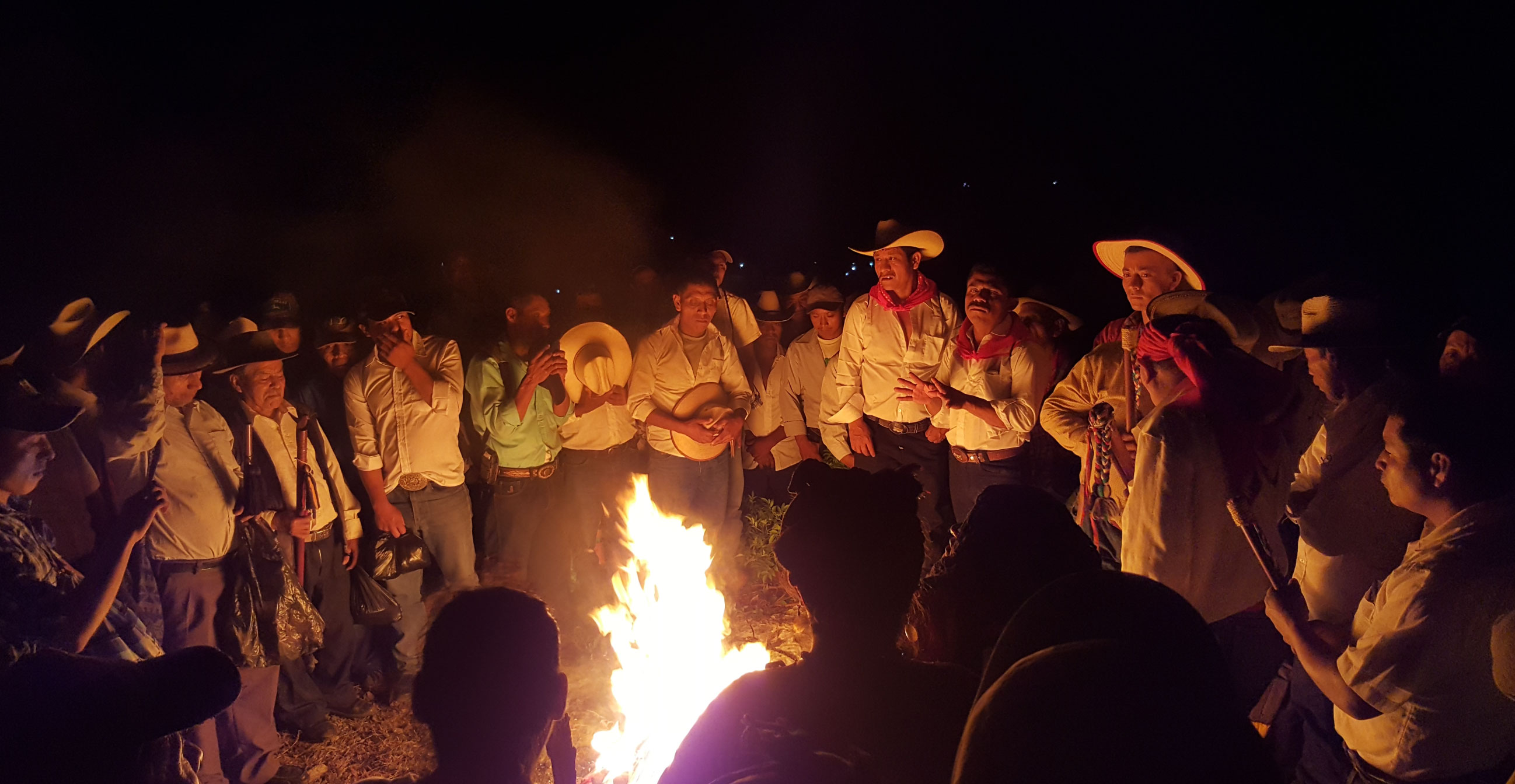Narratives and actions against Indigenous Peoples are still present in this Central American country. The Guatemalan government uses assimilation policies, decreases the budget of human rights organizations, does not comply with prior consultation, and does not respect lands rights. At the same time, the state of siege is a recurrent method to repress social protests, the so-called “pact of the corrupt” gets more and more impunity, and racism consolidates in the form of economic inequity and political marginalization.
Narratives and actions against Indigenous Peoples are still present in this Central American country. The Guatemalan government uses assimilation policies, decreases the budget of human rights organizations, does not comply with prior consultation, and does not respect lands rights. At the same time, the state of siege is a recurrent method to repress social protests, the so-called “pact of the corrupt” gets more and more impunity, and racism consolidates in the form of economic inequity and political marginalization.
“Nothing to celebrate”. Under this slogan, Guatemalan Indigenous Peoples protested against the official celebration of the 200 years of Central American independency. For the communities, speeches and colonialist practices, such as dispossession, racism, denial, and violence, continue to prevail in their society. By clinging to colonialism, the State manages to keep seeing Indigenous Peoples as a threat to stability and to advancing towards modernity and, therefore, they are deprived of their fundamental rights.
This colonialist obsession by the Guatemalan State is evidenced in many ways: the rollback on human rights and Indigenous rights; the recurring denial to Indigenous claims and proposals; the violent repression against protesters, including the decreeing of a state of siege; the granting of extractive licenses in ancestral lands; and the recurring practices of structural racism, as well as social and political exclusion.
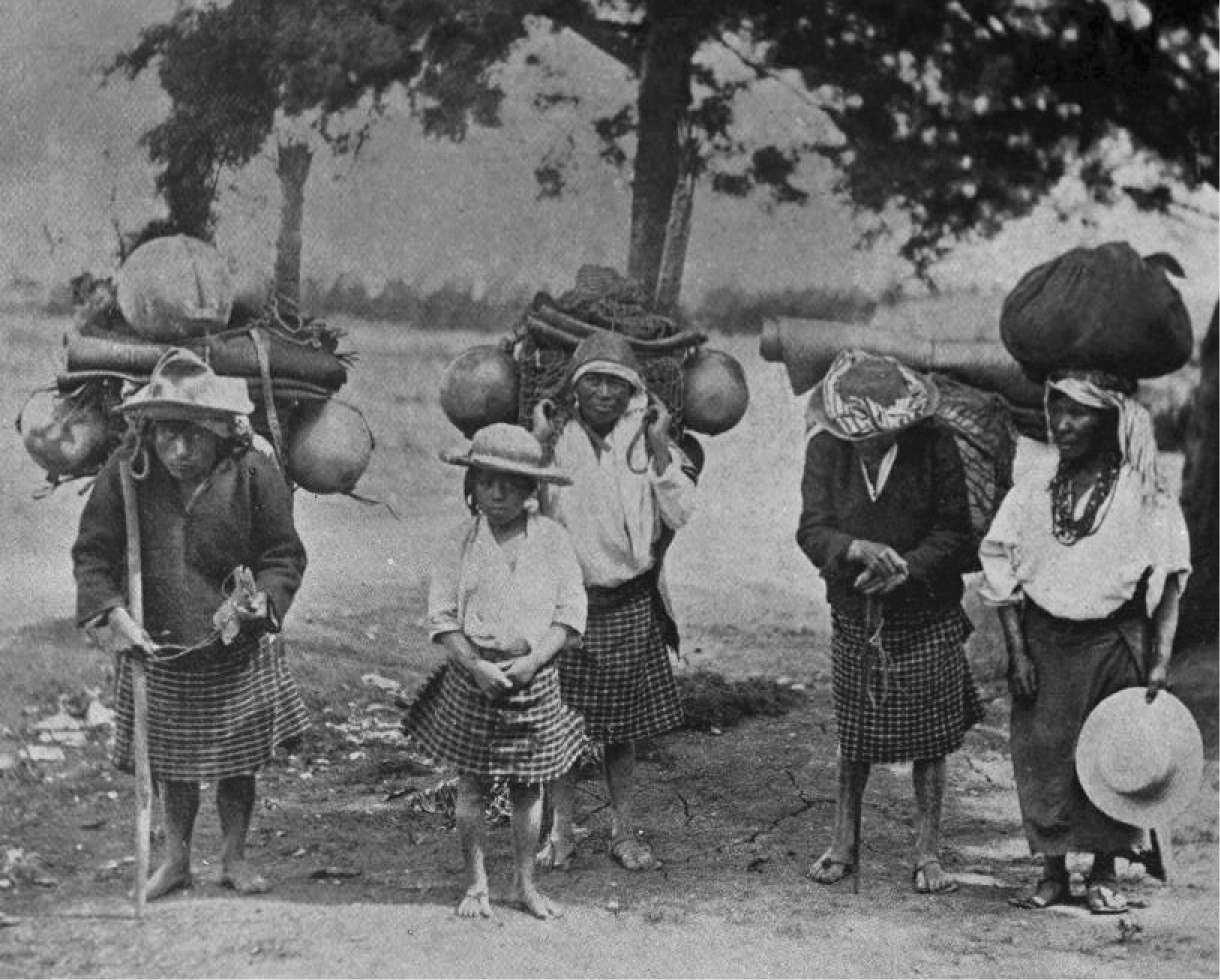
Indigenous people from Nahualá by the end of the 19th century. Photo: A. G. Valdeavellano
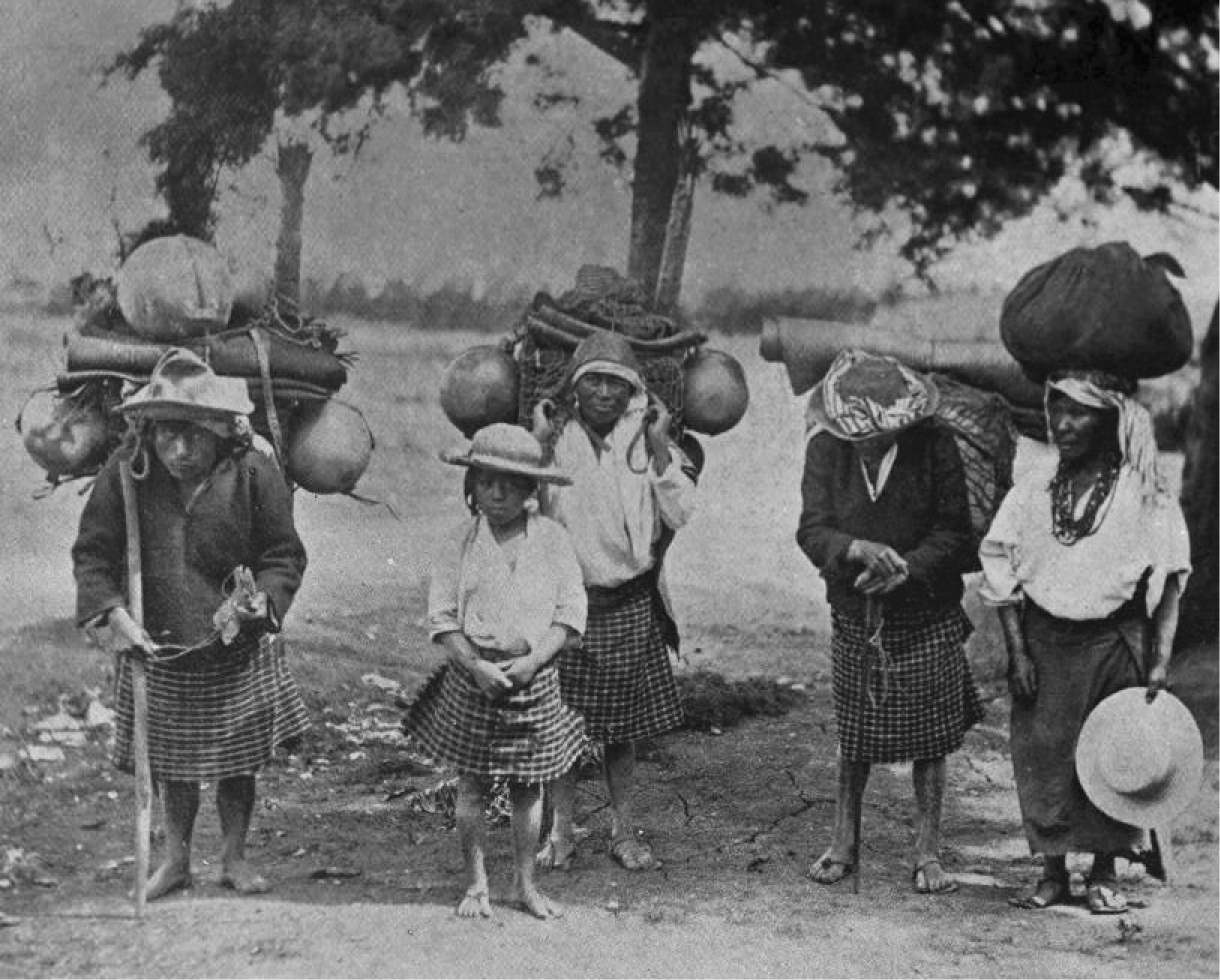
Indigenous people from Nahualá by the end of the 19th century. Photo: A. G. Valdeavellano
The Rollback of Indigenous Rights in Guatemala
According to the hegemonic narrative, human rights are an obstacle to the exercise of power since it limits the efficacy in which security forces can enforce public order and combat crime. This story is believed by a great majority of the population who demand stronger actions to be taken, including taking the law into their own hands and capital punishment. The proposal to recognize Indigenous jurisdiction, that is, seeking justice according to their own culture and values, has not yet been approved under the pretenses that the rule of law and only one official legal institution must prevail.
The State’s denial of human rights is very noticeable. The Human Rights Presidential Commission (in Spanish, COPREDEH) has reduced the Office of Human Rights Ombudsman’s (in Spanish, PDH) budget when one of the prosecutors was not aligned with the government’s interests. In fact, now that it is influenced by pro-government political forces, the PDH has done nothing to help Indigenous communities who were violently displaced from their ancestral lands. It has not said anything about the criminalization and repression suffered by thousands of leaders who defend their lands and natural resources.
Despite the fact that Guatemala has ratified and granted constitutional status to ILO Convention 169 and has adopted the UN Declaration on the Rights of Indigenous Peoples, in practice, there are no follow-through on their application. The Indigenous People’s claim for the State to recognize their ancestral lands right has constantly been ignored.
Consultations are not prior to the projects’ approval nor are they binding: in practice, they are just a procedure to justify having complied with the requirement, and they never lead to the cancellation of the project.
The government has completely abandoned the commitments acquired by the State in order to achieve firm and long lasting peace.
The Constitutional Court has decided to suspend the extractive projects of San Rafael Mine (Canadian funding) and Fenix Mine (Russian funding) temporarily until the consultation process has been fulfilled and until a document has been adopted in order to make that possible. However, consultations are not prior to the projects’ approval nor are they binding: in practice, they are just a procedure to justify having complied with the requirement, and they never lead to the cancellation of the project if consultation is rejected. Thus, the companies continue to operate irrespective of the people’s approval or rejection of the project.
Lastly, this denial of ancestral lands rights and attention to land conflicts are getting stronger than ever. In 2020, the government eliminated the Secretary of Agricultural Affairs and the Permanent Dialogue Mechanism, both public entities that contributed to land possession dispute resolution. Moreover, all the institutions created to abide by the Peace Agreements signed in 1996, such as the Secretariat for Peace of the Presidency of the Republic (in Spanish, SEPAZ) and the National Compensation Program (in Spanish, PNR). Consequently, the government has completely abandoned each and every commitment acquired by the State in order to achieve a firm and lasting peace.
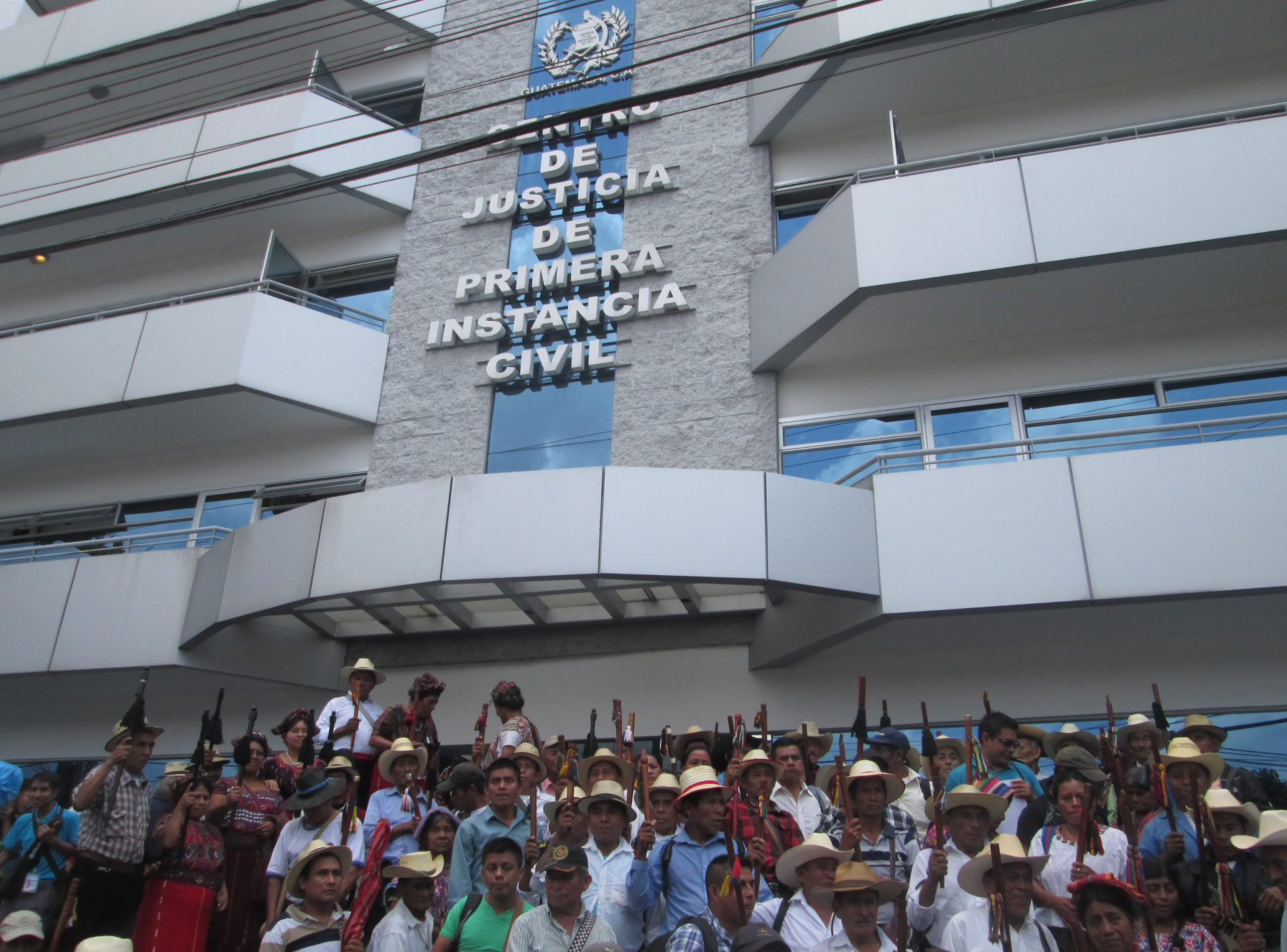
Filing of a writ of amparo before the Court. Photo: Silvel Elías
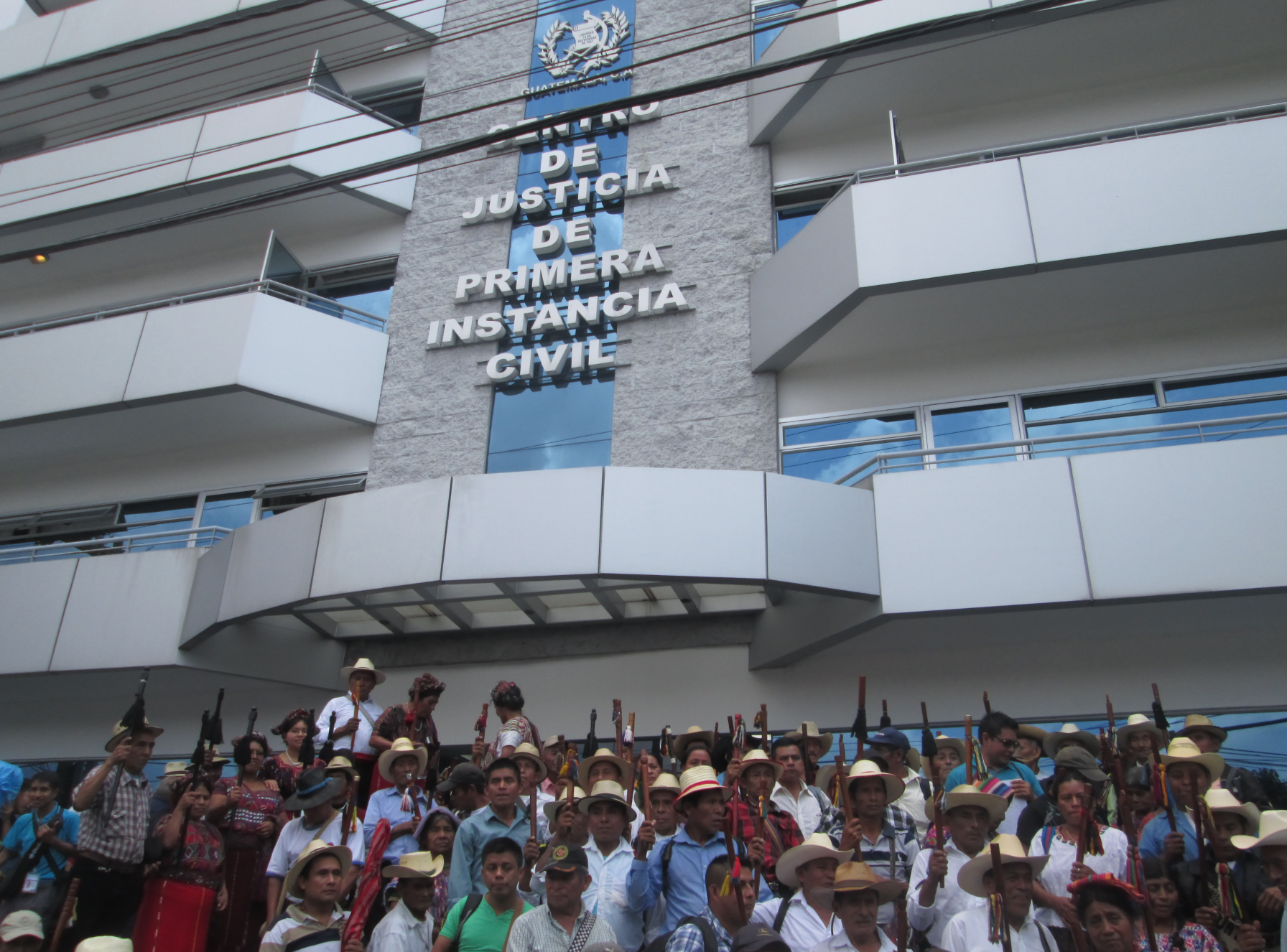
Filing of a writ of amparo before the Court. Photo: Silvel Elías
State of Siege and criminalization
In Guatemala, the state of siege reminds everyone of the excesses committed by the police and the Armed Forces during the long non-international armed conflict (1960 – 1996). Even though scars are still fresh in collective memory, the state of siege is a recurrent method to maintain order during conflicts, either due to land rights disputes or due to the people’s rallies against imposing extractive projects. It is not necessary to explain that this mechanism limits citizens’ rights like freedom of movement, peaceful assembly and organization included in the Political Constitution of the Republic.
Despite this terrible manifestation of force, land conflicts have not yet been solved because nobody analyzes the underlying causes, and this makes the problems resurface in the short term. Moreover, those projects which had no consultation process have not been modified in order to grant extractive permits, particularly, for mines and hydroelectric projects, that harm the communities and risk their livelihoods. Additionally, repression and criminalization of human right advocates, including Indigenous and peasant leaders, most of which have been detained or murdered, have increased.
At the same time, impunity keeps growing. The government and power groups form what is known as the “pact of the corrupt” made up of former officials, politicians and businessmen charged with corruption. They managed to close and get rid of the International Commission against Corruption and Impunity in Guatemala (in Spanish, CICIG). Additionally, they initiated a criminal action against criminal investigators, prosecutors, attorneys and journalists who fought against corruption. They are now facing trial based on false accusations or they are in exile abroad. This helped close many corruption cases and strengthen the “pact of the corrupt”.
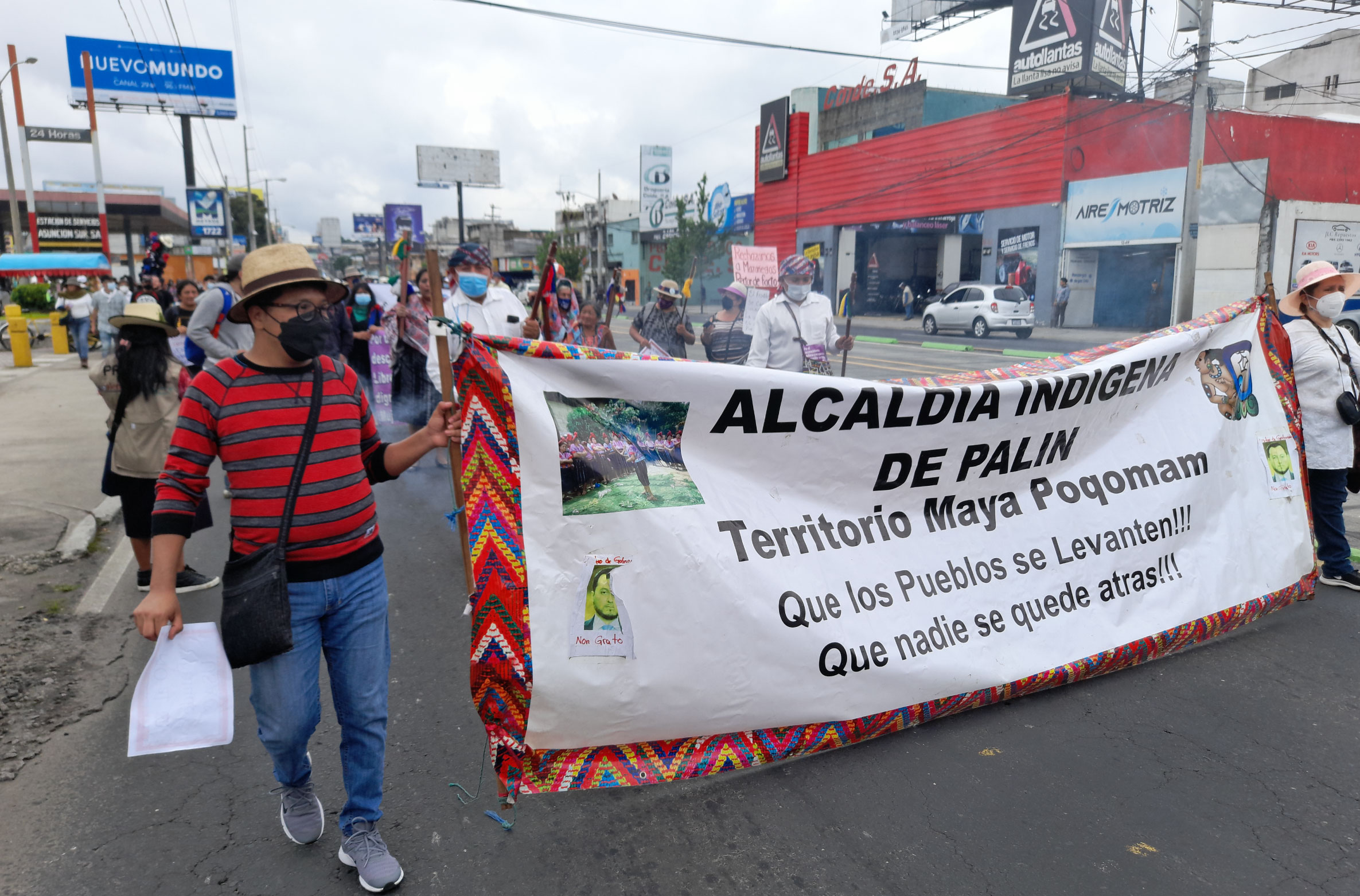
Indigenous protest against corruption. Photo: Silver Elías

Indigenous protest against corruption. Photo: Silver Elías
Racism, exclusion and structural poverty
Racist and excluding narratives and practices are subtle in Guatemalan society. This is the basis of their deep social inequity, which causes Indigenous Peoples to be the ones who are the most affected by poverty, as shown by income, education, health and nutrition indicators. This inequality is getting deeper with no laws, public policies or differentiated programs that protect Indigenous Peoples.
This situation may start to change if their lands right, their right to self-determination and to create their own development model are recognized. However, the State avoids taking differentiated actions as regards education, justice, development and natural resources arguing all citizens should be equal and resorting to nationalism. According to this view, we should not talk about indigenous and ladino people, but Guatemalans who are equal in rights and duties. This perspective ignores reality, where ethnic inequality affects society.
Even though Guatemalan Indigenous Peoples represent 45% of the population, their representation in Congress has never been higher than 10%.
Even though Guatemalan Indigenous Peoples represent 45% of the population, their representation in Congress has never been higher than 10%.
Exclusion is also evident in political participation. Even though Guatemalan Indigenous Peoples represent 45 % of the population, their representation in Congress has never been higher than 10 %. In addition to this, those who got to Congress do not represent Indigenous interests, but those of the political parties they are part of. Indigenous women are the most affected by racism and exclusion because of the patriarchal culture in the country. Their voices and claims are always invisible, and many of them are still pursuing justice after being victims of violence. We should highlight that after struggling for a long time, in the last few years, Q’eqchi, Ixil and Achí indigenous women who were sexually harassed during the non-international armed conflict got the Court to convict the military and paramilitary personnel who attacked them.
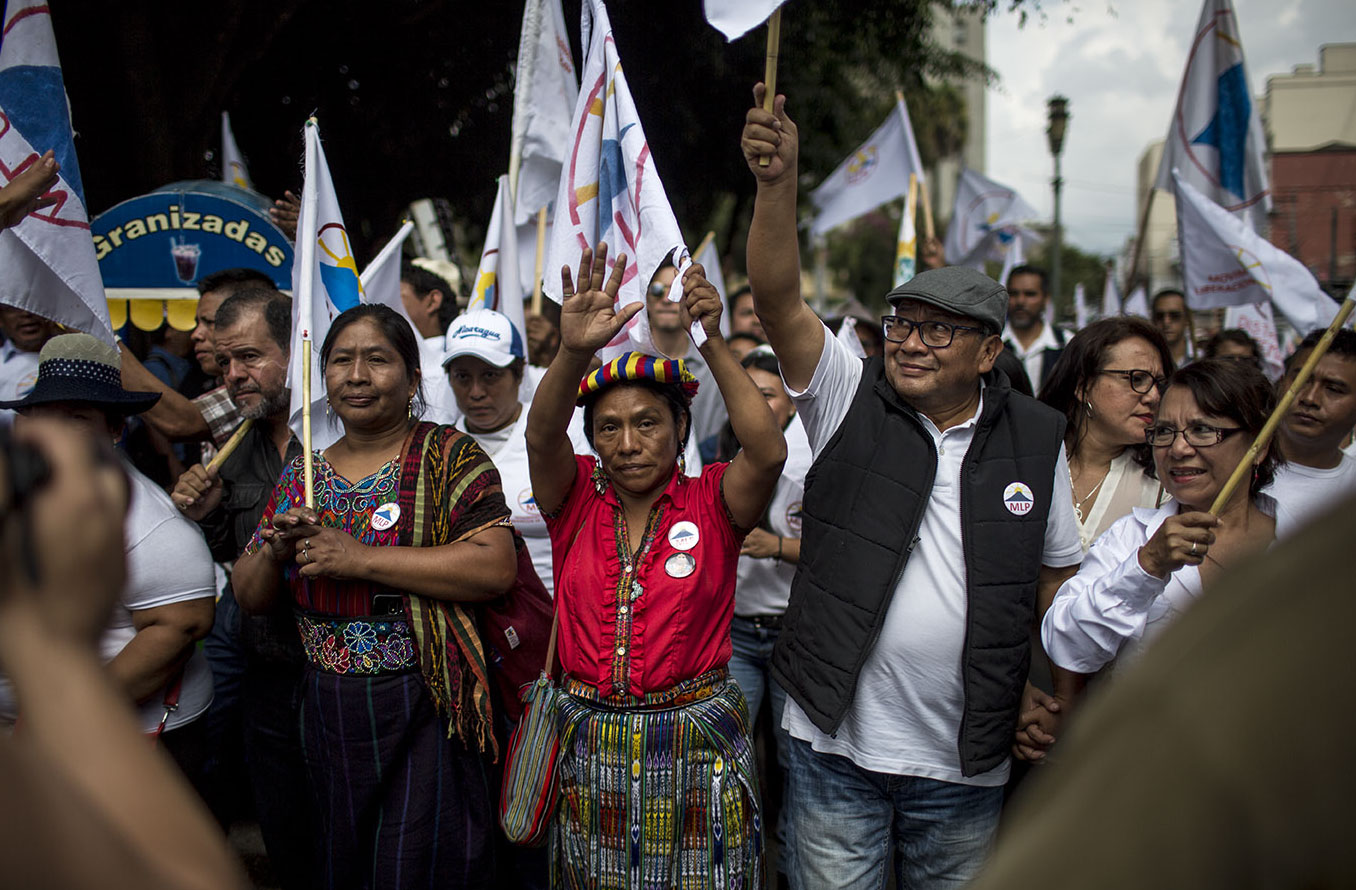
Indigenous leader Thelma Cabrera protesting. Her presidential nomination was rejected by the Supreme Electoral Court. Photo: Mujeres Bacanas

Indigenous leader Thelma Cabrera protesting. Her presidential nomination was rejected by the Supreme Electoral Court. Photo: Mujeres Bacanas
Silenced by colonial policies
Colonialism in Guatemala is also shown by the lack of participation of Indigenous Peoples in the creation of public policy. Most governmental documents do not include the content of international agreements ratified by the country. Policies about the environment, the forest, climate change, biodiversity and protected areas do not mention Indigenous knowledge and ways of life. Their governance efforts are not acknowledged either even though it has been proved that Indigenous Peoples are true guardians of mother nature.
The political crisis the country is experiencing since 2015, together with the struggle against corruption and its opponents, have had serious implications for Indigenous Peoples. It is not just moving backwards as regards the few rights they got recognized. The change in power stopped the land restitution process and increased the repression against those Indigenous leaders who are protecting their lands and territories against dispossession and the imposition of extractive projects. Migration of Indigenous Peoples abroad has also increased considerably. If this was not enough, the Supreme Electoral Court rejected the presidential nomination of the only Indigenous women who applied for the 2023 elections.
Along with the political crisis, colonialist practices became more violent to silence Indigenous struggles. This proves that colonialism is still alive and that it has been adapted in order to perpetuate plunder and accumulation due to dispossession. While the government and the power elite celebrated the bicentennial of the independence and the electoral processes, Indigenous Peoples are still being excluded and stripped of their rights. They have nothing to celebrate.
